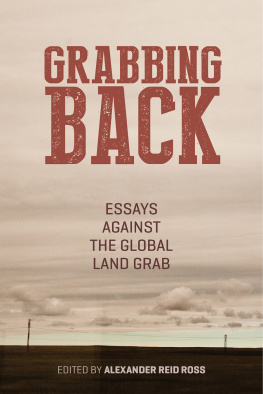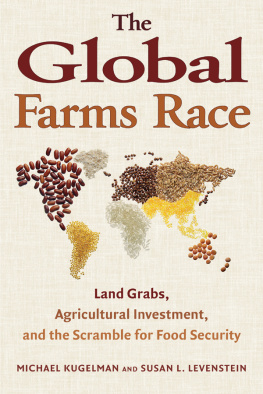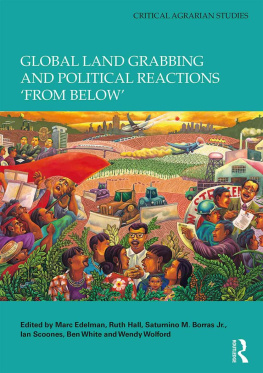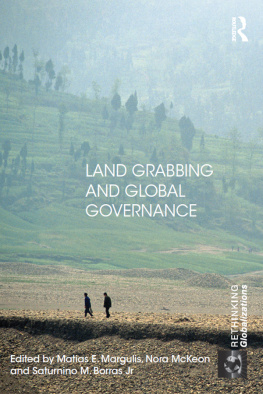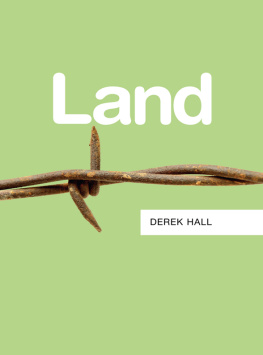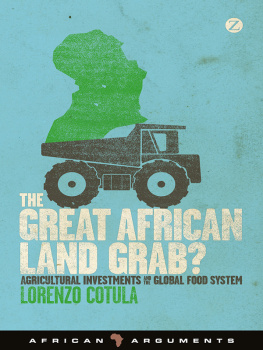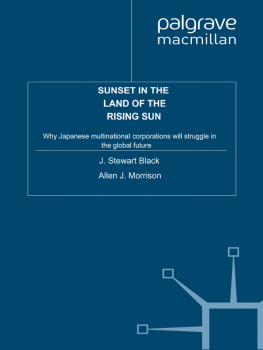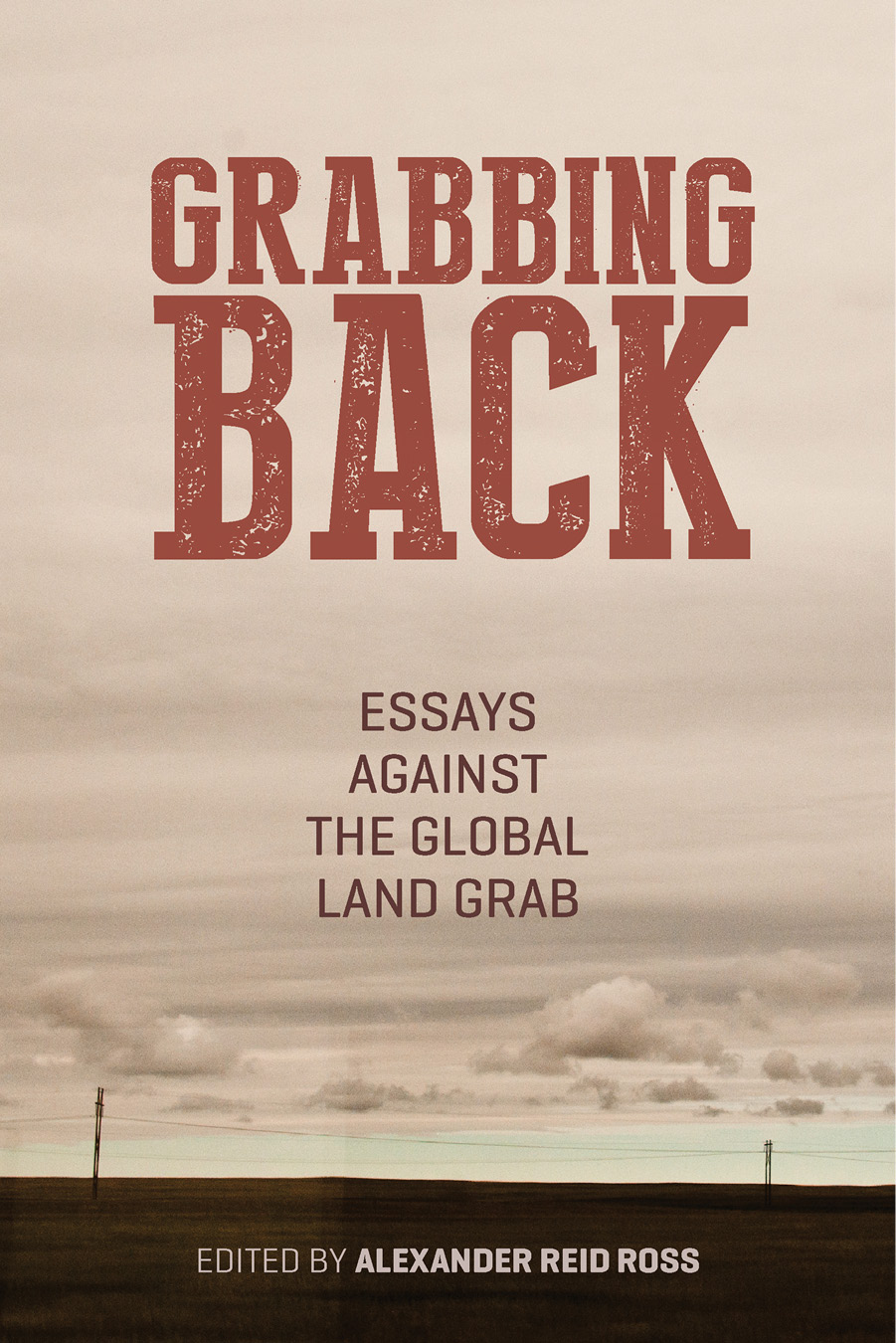Alexander Reid Ross - Grabbing Back: Essays Against the Global Land Grab
Here you can read online Alexander Reid Ross - Grabbing Back: Essays Against the Global Land Grab full text of the book (entire story) in english for free. Download pdf and epub, get meaning, cover and reviews about this ebook. year: 2014, publisher: AK Press, genre: Politics. Description of the work, (preface) as well as reviews are available. Best literature library LitArk.com created for fans of good reading and offers a wide selection of genres:
Romance novel
Science fiction
Adventure
Detective
Science
History
Home and family
Prose
Art
Politics
Computer
Non-fiction
Religion
Business
Children
Humor
Choose a favorite category and find really read worthwhile books. Enjoy immersion in the world of imagination, feel the emotions of the characters or learn something new for yourself, make an fascinating discovery.
- Book:Grabbing Back: Essays Against the Global Land Grab
- Author:
- Publisher:AK Press
- Genre:
- Year:2014
- Rating:4 / 5
- Favourites:Add to favourites
- Your mark:
Grabbing Back: Essays Against the Global Land Grab: summary, description and annotation
We offer to read an annotation, description, summary or preface (depends on what the author of the book "Grabbing Back: Essays Against the Global Land Grab" wrote himself). If you haven't found the necessary information about the book — write in the comments, we will try to find it.
Land grabs are a global phenomenon of our times, driven by the ever increasing demands of both global corporations and the governments with which they are allied. But as this powerful and timely book demonstrates, ordinary citizens, small farmers and ordinary citizens around the world are standing up to defend their own with passion and ingenuity, and they are recording successes that are both extraordinary and inspiring. Oliver Tickell, Editor, The Ecologist.
Climate change ravages the earth, while wealthy elites try to grab as much of the worlds diminishing resources as possible. As Vandana Shiva writes, land is life. But land, and the struggle to possess it, is also powercolonial and corporate power, to be sure, but also the power of the dispossessed to rise up and call for an end to the global land grab.
Grabbing Back maps this struggle, bringing together analyses that uncover the politics of cultivation and control. In this unprecedented collection, on-the-ground activists join forces with critically acclaimed scholars to document the commodification and consumption of space, from foreclosed homes to annihilated rainforests, from ecotourism in Sri Lanka to the tar sands of Montana, and to outline the strategies and tactics that might the destruction.
With contributions by Vandana Shiva, Noam Chomsky, Max Rameau, Grace Lee Boggs, Michael Hardt, Ahjamu Umi, Ben Dangl, and many others.
More Praise for Grabbing Back:
Part of the reason that knowledge about the current global land grab is so uncertain is the paucity of perspectives and analysis in defining the problem. This book fills the gap admirably. Raj Patel, author of Stuffed and Starved
The acquisition, control, and exploitation of land, as well as the simultaneous dispossession of land-based and peasant communities, is central to the processes of both colonialism and capitalism. As Fanon reminds us, egalitarian governance and stewardship of land is fundamental to the struggle for liberation and self-determination for all oppressed peoples. This makes Grabbing Back a necessary study for anticapitalist and anticolonial movements. Harsha Walia, author of Undoing Border Imperialism
Grab back this sparkling mosaic of essays as a treasure of our new-old knowledge commons. Together these pieces replace dichotomies with dialectics, making explicit the inseparability of land and collective life. Together they restore the vital concept of social ecology in resistance to relentless and increasingly apocalyptic capitalism, with emphasis on its second contradiction: its impossibility on a finite resource base. Maia Ramnath, author of Decolonizing Anarchism
As the forces of thanatos leave no stone unturned in their quest to dominate the entire planet, this anthology provides a much needed antidote. Weaving together accounts from around the world, the authors advocate building grassroots movements aimed at subverting capitals incessant assault on our lives and land.George Katsiaficas, author of Asias Unknown Uprisings
Never perhaps has the land question been so crucial for anti-capitalist movements, as we are witnessing a global process of enclosure that privatizes lands, waters, forests, displacing millions from their homes, and placing monetary gates to what we rightly considered our commonwealth. It is essential then that we understand what motivates this drive and its effects in all their social and spatial dimensions. Grabbing Back takes us through this process, identifying the reasons and actors behind this global land-grab and, most important,...
Alexander Reid Ross: author's other books
Who wrote Grabbing Back: Essays Against the Global Land Grab? Find out the surname, the name of the author of the book and a list of all author's works by series.

